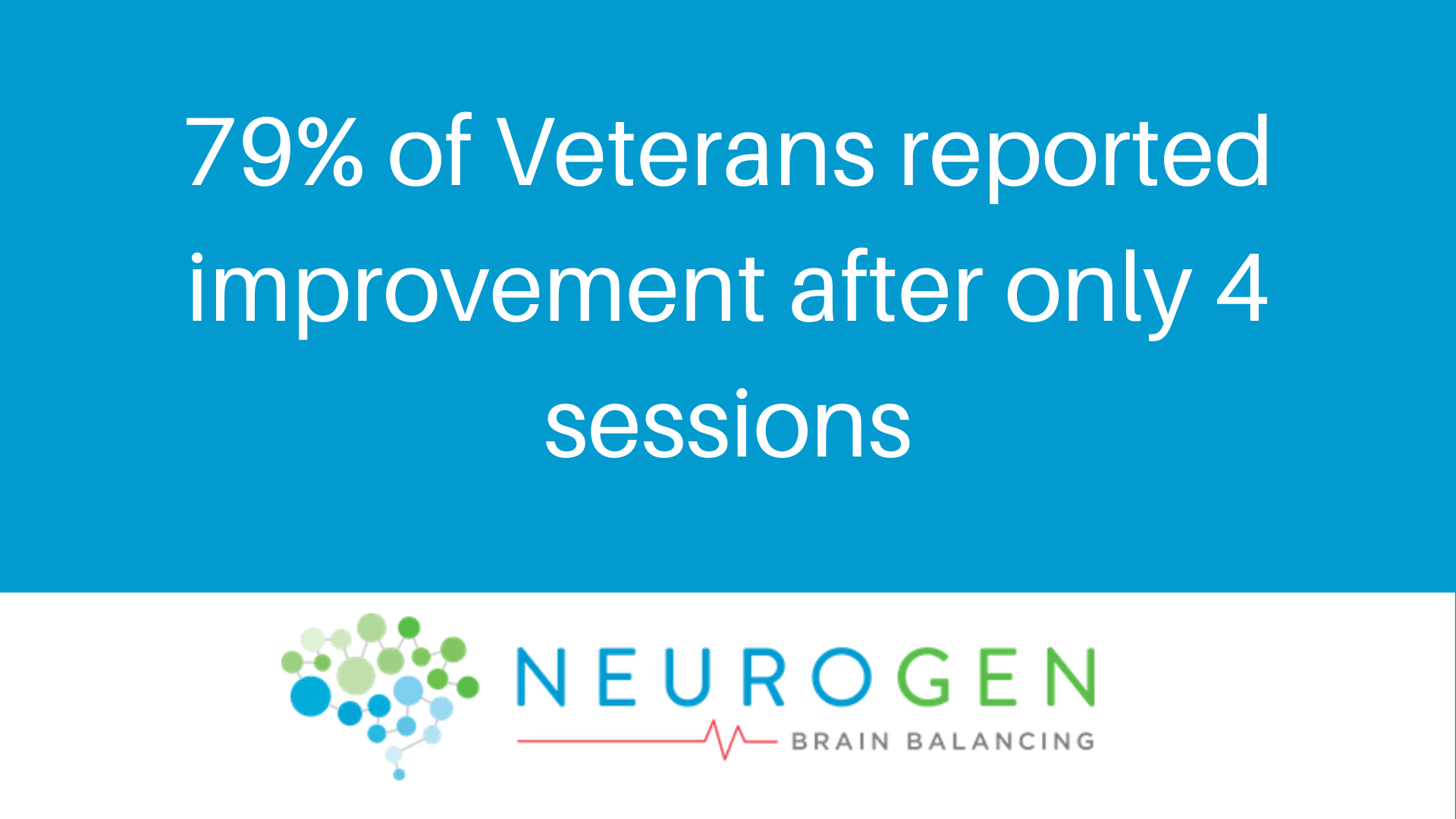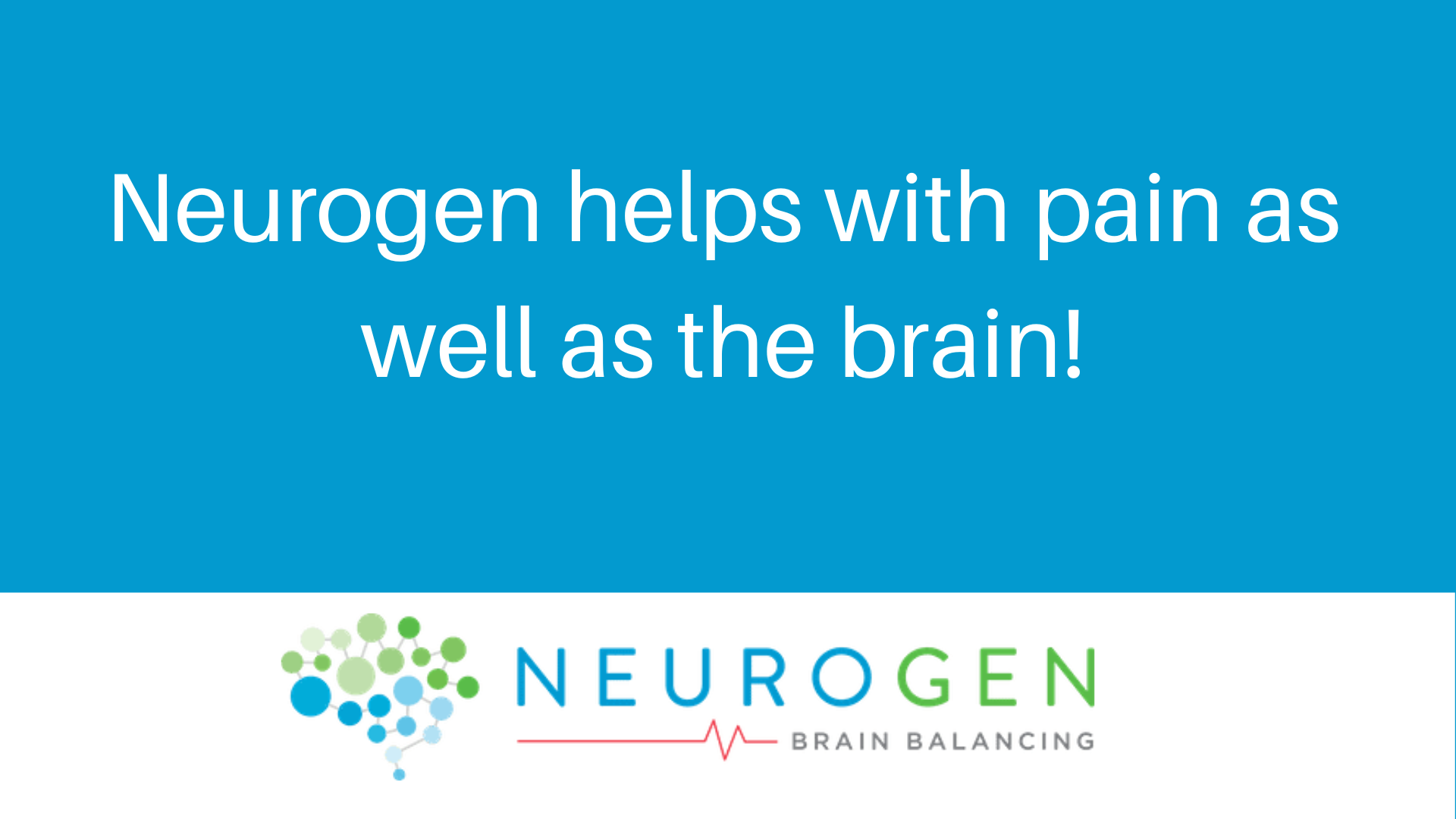20 year Neurosurgeon - "Neurogen has changed the way I treat patients w TBI!”
June 21, 2025
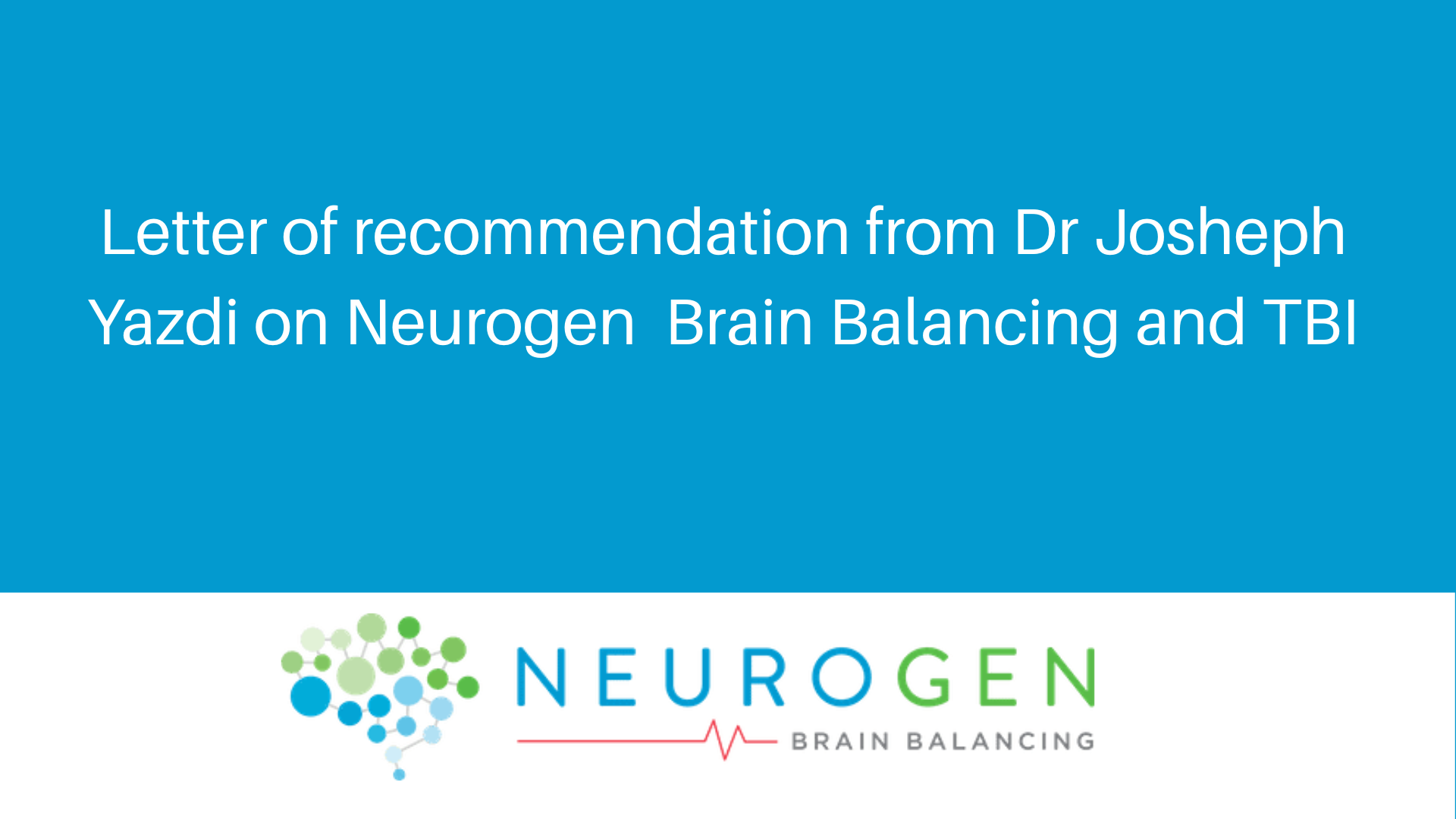
Below is the image of the letter of recommendation from Dr Joseph Yazdi regarding Neurogen Brain Balancing. You can download the letter by clicking on the buttion.
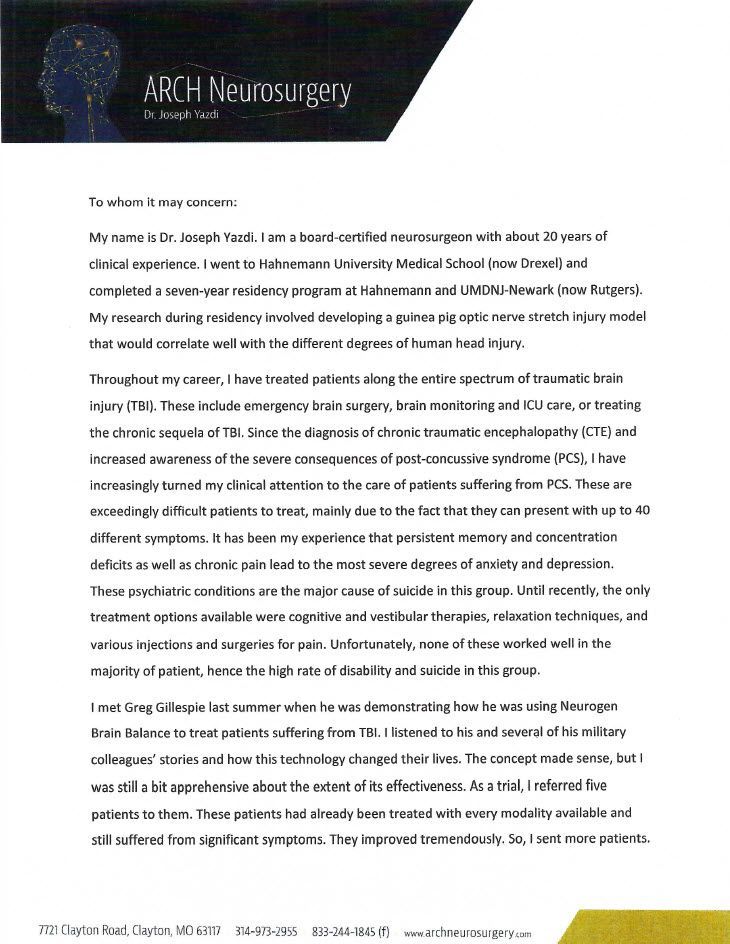
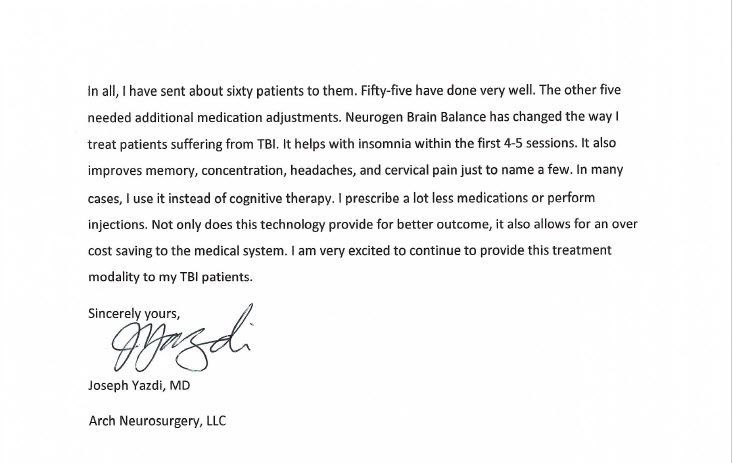
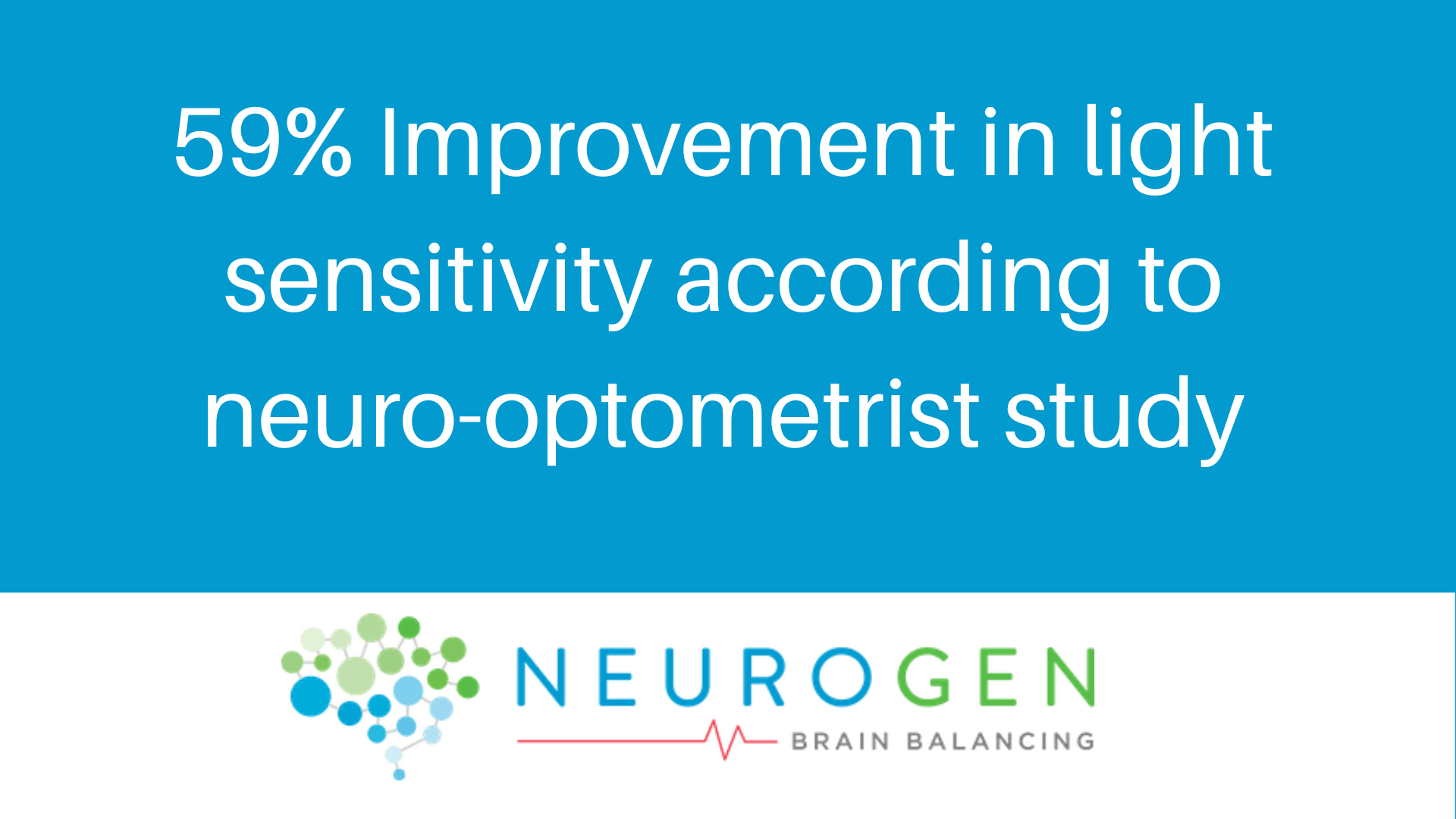
June 23, 2025
Latest NeurogenTM Research NeurogenTM Case Report for the Treatment of Light Sensitivity after Mild Traumatic Brain Injury Dr. Jenalyn Jotie, a U.S. Navy Veteran and fellowship-trained neuro-optometrist, recently published a case report in the journal of Vision Development and Rehabilitation investigating the use of NeurogenTM for the treatment of light sensitivity after mild traumatic brain injury in one Post-9/11 Veteran. She presented her findings at the annual Neuro-Optometric Rehabilitation Association 2023 conference in Portland, OR. https://pubs.covd.org/VDR/issue9-3/
Recent Posts

June 23, 2025
Latest NeurogenTM Research NeurogenTM Case Report for the Treatment of Light Sensitivity after Mild Traumatic Brain Injury Dr. Jenalyn Jotie, a U.S. Navy Veteran and fellowship-trained neuro-optometrist, recently published a case report in the journal of Vision Development and Rehabilitation investigating the use of NeurogenTM for the treatment of light sensitivity after mild traumatic brain injury in one Post-9/11 Veteran. She presented her findings at the annual Neuro-Optometric Rehabilitation Association 2023 conference in Portland, OR. https://pubs.covd.org/VDR/issue9-3/

By Neuroscience
•
January 12, 2021
Over one hundred years ago, in 1875, a British physician, Richard Caton, recorded the brain’s electrical impulses in animals through an instrument devised for passively observing the electrical activity. The device he used was an electroencephalogram (EEG), and it’s still widely used today. The EEG operates on the same fundamental principles as an electrocardiogram (EKG) used to measure heart rates and rhythms. A single neuron firing is imperceptible with EEG, but when billions of them synchronously fire together, waves of bioelectric energy can be detected in the form of brain waves.


